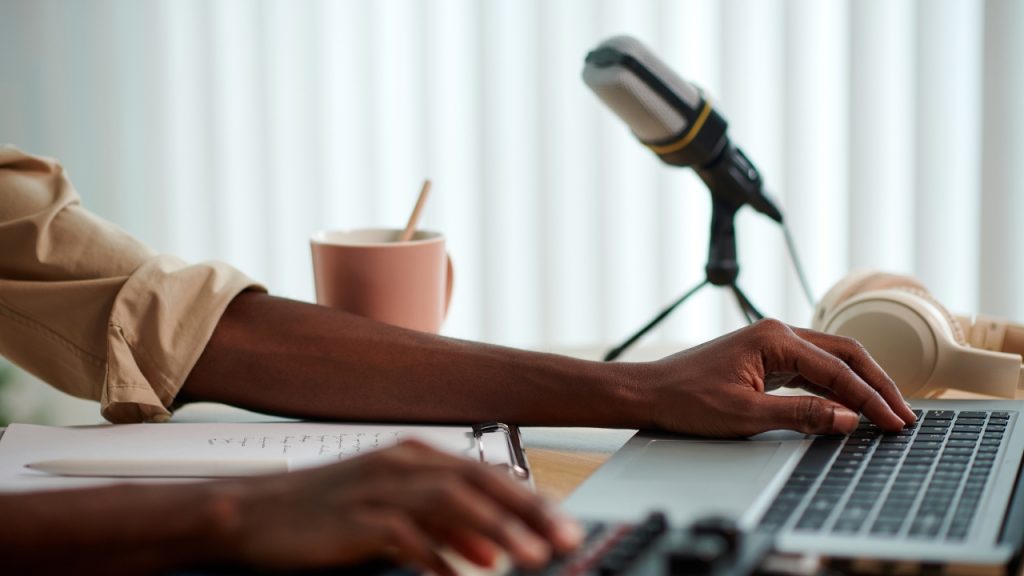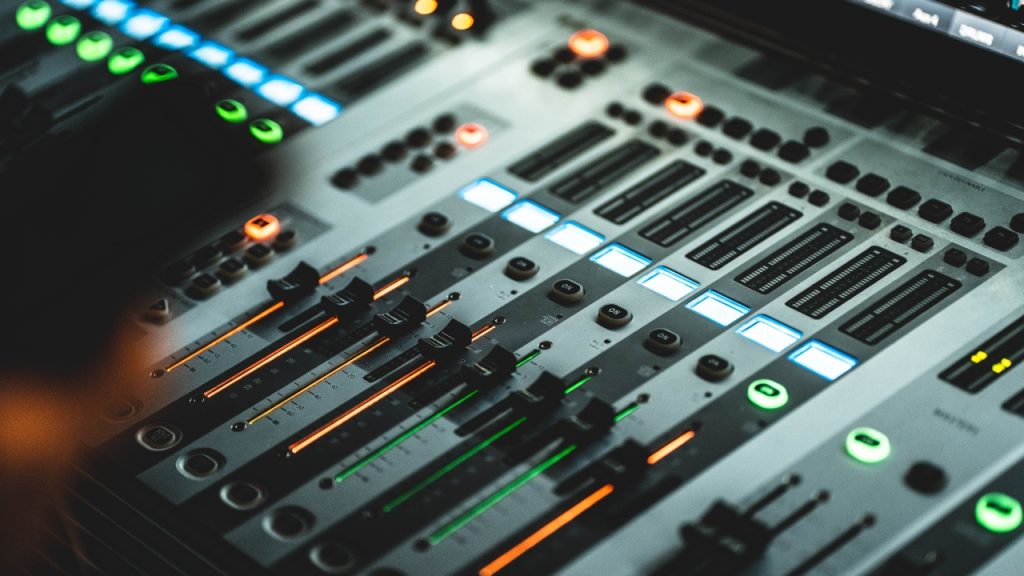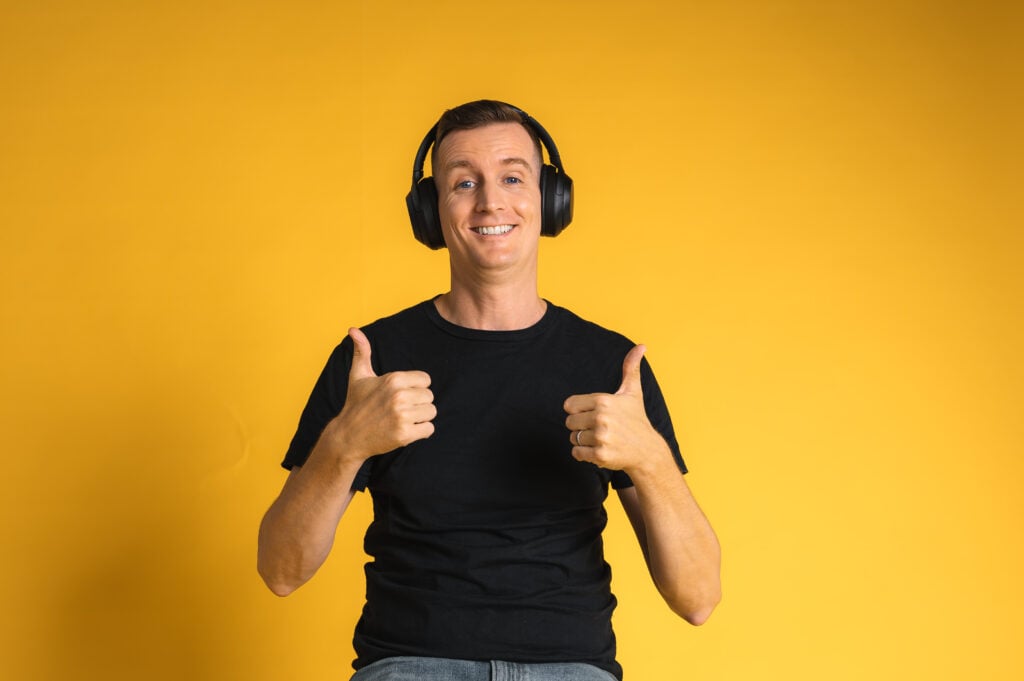Every podcaster reaches the same crossroads sooner or later: Should you edit your show yourself, or hire a professional podcast editor?
Editing is where a good podcast becomes a great one. It’s about creating flow, improving sound quality, balancing levels, and keeping your audience engaged from start to finish. But here’s the challenge: editing takes time, skill, and patience. Many creators start by editing their own episodes, only to realize how much effort it really requires.
So which option is right for you? In this post, we’ll explore the pros and cons of DIY podcast editing vs hiring an editor, so you can make the best decision for your show, your time, and your goals.
What Does Podcast Editing Involve?
Podcast editing is the post-production stage where raw audio is refined into a polished, listener-friendly episode. The process often includes:
- Trimming and arranging segments to create a logical flow.
- Removing mistakes, filler words, or long pauses.
- Balancing volume levels between hosts and guests.
- Reducing background noise, echo, or reverb.
- Adding intro/outro music, transitions, or sound effects.
- Exporting the final audio at consistent loudness (LUFS) standards.
Whether you’re editing in Audacity, Descript, GarageBand, or Adobe Audition, the goal is the same: make your podcast sound clean, consistent, and professional.

How Important Is Podcast Editing?
Podcast editing is essential to turning raw recordings into professional, engaging episodes. Even great conversations can lose impact if they’re filled with long pauses, background noise, or uneven volume. Editing shapes the listening experience — it makes your message clear, smooth, and enjoyable.
Good editing improves clarity, flow, and pacing, removes distractions, and keeps your audience focused on the story. It also balances sound levels between hosts, guests, and music so your podcast feels consistent and polished across episodes.
In today’s competitive market, listeners quickly abandon shows that sound unprofessional. That’s why editing isn’t optional — it’s a core part of your brand. A well-edited podcast builds credibility, holds attention, and shows respect for your audience’s time.
So we all know the importance of the post-production process, the question now is who should do it?
Pros and Cons of DIY Podcast Editing
Pros
1. Save Money
The biggest benefit is financial. DIY podcast editing only costs your time and effort. Many free or low-cost tools, such as Audacity or GarageBand, provide everything you need to start. If your show is new and your budget small, this is the most affordable path.
2. Full Creative Control
When you edit your own show, you have total control over every detail, pacing, transitions, effects, and tone. You can experiment freely and develop your own sound signature that fits your brand and personality.
3. Skill Development
Learning audio production gives you valuable technical knowledge. You’ll gain insight into what makes audio sound professional, helping you record better content from the start and communicate more effectively with podcast editors later if you choose to hire one.
4. Flexible Schedule
Editing yourself means you set the pace. You can edit at night, on weekends, or between other creative tasks, without waiting for someone else’s turnaround time or availability.
Cons
1. Time-Consuming
Editing takes much longer than many expect. A 45-minute episode can require 3–6 hours of detailed work, especially if you’re new to it. Tasks like cleaning audio, cutting mistakes, and balancing levels can quickly add up.
2. Steep Learning Curve
Understanding EQ, compression, noise reduction, and loudness standards takes practice. Without experience, it’s easy to over-edit or make the audio sound unnatural.
3. Inconsistent Quality
Free tools and limited experience often lead to uneven sound quality from episode to episode. You might notice volume jumps, harsh tones, or inconsistent noise levels, all of which affect listener experience.
4. Opportunity Cost
Every hour spent editing is an hour not spent planning new episodes, booking guests, or promoting your podcast. If your goal is growth, that tradeoff can slow your progress significantly.
Read more if you want to try editing yourself: How to Fix Bad Podcast Audio by Yourself: 10 Ways
Pros and Cons of Hiring a Podcast Editor

Pros
1. Professional Sound Quality
A trained podcast editor knows how to make your show sound crisp and balanced. They use professional-grade tools and techniques to remove background noise, level voices, and ensure consistent loudness, giving your podcast a broadcast-quality finish.
2. Saves You Time
Outsourcing frees up hours every week. Instead of editing, you can focus on what matters most: creating great content, engaging your audience, and growing your show.
3. Consistency and Reliability
A professional editor ensures that each episode sounds as polished as the last. Consistent quality builds trust with listeners and helps your podcast sound like a cohesive brand rather than a one-off project.
4. Scales With Your Growth
As your show expands, perhaps with multiple hosts, guests, or spin-off series, editing quickly becomes too demanding. A dedicated podcast editor or editing team allows you to scale production without sacrificing quality or burning out.
5. Enhances Your Brand Credibility
High-quality sound reflects professionalism. If your podcast supports a business, attracts sponsors, or represents your personal brand, clean audio can elevate how others perceive you.
Cons
1. Cost
Quality editing services aren’t cheap. Prices typically range from $50 to $300 per episode, depending on length, complexity, and turnaround speed. While it’s an investment, many podcasters find the time savings well worth the expense.
See Seven Million Bikes Pricing Options here.
2. Communication Required
You’ll need to share your creative preferences and style clearly, especially early on. Good editors adapt quickly, but expect a short adjustment period while you establish your workflow and expectations.
3. Turnaround Time
Editors work with production schedules. If you often need last-minute edits or same-day turnarounds, you may need to plan ahead or pay rush fees.
4. Less Hands-On Control
While professionals follow your creative direction, you’re still trusting someone else to execute your vision. Some podcasters miss the hands-on element of controlling every cut and effect.
| Factor | DIY Editing | Hiring an Editor |
| Cost | Free or low (software only) | $50–$300 per episode |
| Time Investment | 3–6 hours per episode | Minimal, focus on content creation |
| Audio Quality | Depends on skill and tools | Professional, consistent sound |
| Creative Control | Full control over every detail | Shared; based on feedback and direction |
| Learning Curve | Steep for beginners | None, handled by expert |
| Turnaround Speed | Whenever you finish | Based on editor’s schedule |
| Scalability | Hard to manage multiple episodes | Easy, delegate and grow |
When You Should Edit Yourself vs Hire an Editor
Deciding whether to handle editing yourself or outsource it depends on your goals, experience, and stage of growth as a podcaster.
DIY is the better choice if:
- You’re just getting started and have a limited budget.
- You enjoy the editing process or want to learn audio production.
- Your show is short, simple, and conversational.
- You have more time than money right now.
- You want complete control over your creative direction.
Hiring a podcast editor is the better choice if:
- You’re ready to grow your show or attract sponsors.
- You record with multiple hosts, guests, or remote setups.
- You value consistent, high-quality sound.
- You produce video podcasts or branded content.
- You’d rather focus on content creation, marketing, and audience building.
In short, DIY podcast editing is ideal for beginners who want hands-on experience and maximum creative freedom. But as your show grows and your time becomes more valuable, hiring a podcast editor can help you sound more professional, stay consistent, and scale without stress.
Hybrid Approach: Best of Both Worlds
Some podcasters choose a hybrid approach — handling basic editing themselves while outsourcing the final polish. You can do a “rough edit” to cut mistakes, tighten pacing, and arrange segments, then send the cleaned audio to a professional for mixing and mastering.
Tools like Descript or Alitu make self-editing faster and more intuitive, while pro editors ensure your final sound meets broadcast-quality standards. This method saves time and money without sacrificing quality.
You don’t have to choose one approach forever — your editing strategy can evolve as your show grows and your needs change.
Conclusion – DIY Podcast Editing vs Hiring an Editor
Have you chosen your answer yet?
DIY editing helps you learn valuable skills and stay creative, while outsourcing frees up time and ensures professional quality. Many podcasters even blend both approaches, refining their process as their show grows.
If you’re ready to take your podcast sound to the next level, let’s talk. Whether you need full-service podcast editing or guidance on improving your current workflow, I can help you sound professional and save hours each week.


